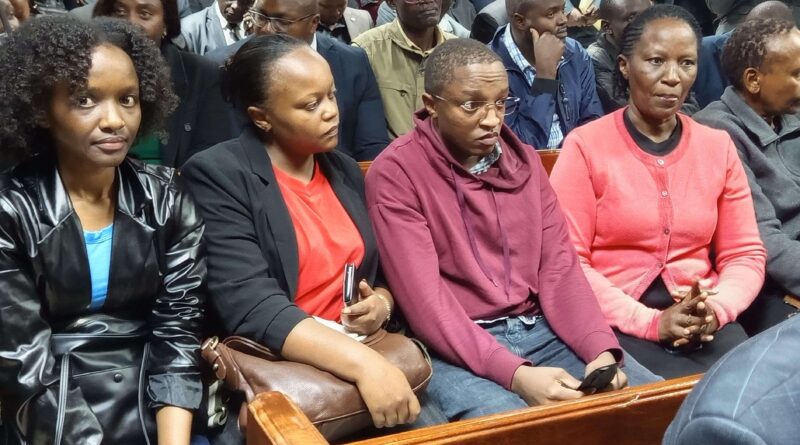Blogger Ndiang’ui Kinyagia Appears in Court After 13-Day Disappearance
After nearly two weeks of being unaccounted for, blogger and activist Ndiang’ui Kinyagia was presented at the Milimani Law Courts in Nairobi on July 3, 2025, bringing an end to a dramatic saga that stirred public concern, legal battles, and accusations of state intimidation.
His court appearance followed a High Court order demanding his production “dead or alive” and comes amid rising scrutiny over the treatment of vocal government critics.
Kinyagia, whose online posts had gained significant traction during recent anti-finance bill protests, went missing on June 21, shortly after sharing protest routes via social media. His sudden disappearance sparked fears of enforced abduction, with activists and human rights groups pointing fingers at law enforcement.
The Directorate of Criminal Investigations (DCI), however, denied any involvement, stating that their only action was to search his residence and confiscate his electronic devices as part of an investigation into allegedly inflammatory content.
During the emotional court session, Kinyagia appeared shaken and was escorted by senior counsel Martha Karua and lawyer Kibe Mungai. His mother, overwhelmed with emotion, embraced him in tears. Lawyers requested a private session with their client, citing concerns for his mental and emotional state after nearly two weeks in hiding.
Through his legal team, Kinyagia revealed that he had gone into hiding voluntarily, fearing for his life due to the threats and pressure he believed were linked to his online activism. His lawyer, Wahome Thuku, clarified that Kinyagia had reached out on July 1 to confirm he was safe but unwilling to surrender without guarantees of his personal safety. The court proceedings brought some relief to his family and supporters but also intensified debates about the shrinking civic space in Kenya.
DCI boss Mohamed Amin, who also attended the court session, reaffirmed the agency’s claim that Kinyagia had not been in their custody. He explained that the blogger was wanted for questioning regarding a social media post perceived to incite unrest. The post, widely circulated, included protest maps that authorities viewed as encouraging illegal assemblies.
The case has drawn significant public attention, especially on social media, where reactions were mixed. Prominent activist Boniface Mwangi criticized Kinyagia for hiding, calling it irresponsible and misleading to the public. Others defended him, citing growing insecurity for whistleblowers and online activists in Kenya.
Justice Chacha Mwita, who is presiding over the case, has now tasked the Inspector-General of Police and the DCI with submitting full explanations regarding Kinyagia’s disappearance. While the DCI has complied, the Inspector-General has yet to appear before the court.
Kinyagia’s lawyers are expected to seek more time for consultation and possibly request protective measures such as bail or conditional release. His reappearance and the subsequent legal actions could serve as a litmus test for Kenya’s commitment to civil liberties, press freedom, and judicial independence.
As the legal process unfolds, Kenyans continue to watch closely—hoping for transparency, justice, and the protection of constitutional rights in an increasingly volatile civic environment.


